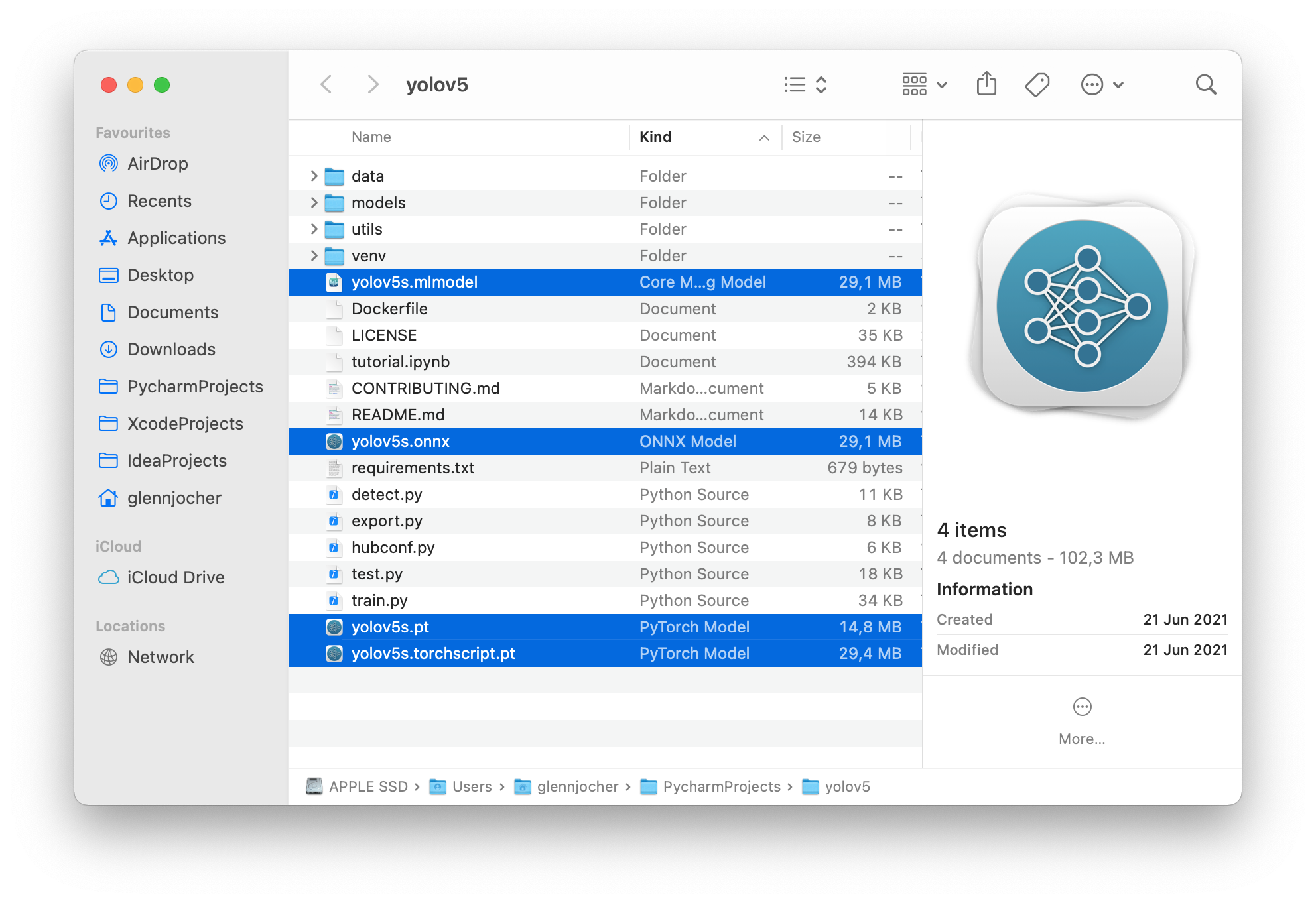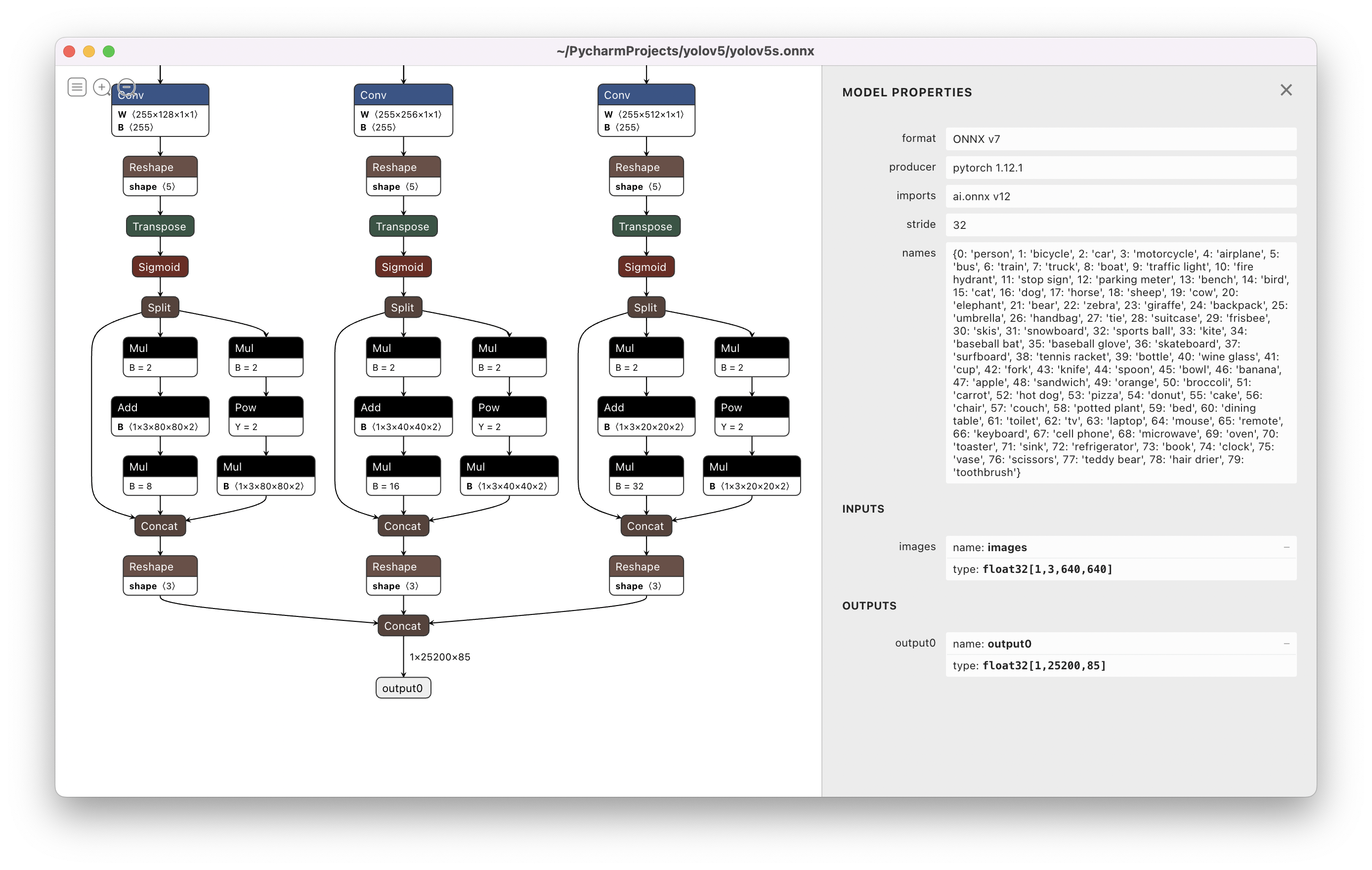-
-
Notifications
You must be signed in to change notification settings - Fork 15.9k
New issue
Have a question about this project? Sign up for a free GitHub account to open an issue and contact its maintainers and the community.
By clicking “Sign up for GitHub”, you agree to our terms of service and privacy statement. We’ll occasionally send you account related emails.
Already on GitHub? Sign in to your account
Training directly with FP16 #1880
Comments
|
👋 Hello @caiusdebucean, thank you for your interest in 🚀 YOLOv5! Please visit our ⭐️ Tutorials to get started, where you can find quickstart guides for simple tasks like Custom Data Training all the way to advanced concepts like Hyperparameter Evolution. If this is a 🐛 Bug Report, please provide screenshots and minimum viable code to reproduce your issue, otherwise we can not help you. If this is a custom training ❓ Question, please provide as much information as possible, including dataset images, training logs, screenshots, and a public link to online W&B logging if available. For business inquiries or professional support requests please visit https://www.ultralytics.com or email Glenn Jocher at glenn.jocher@ultralytics.com. RequirementsPython 3.8 or later with all requirements.txt dependencies installed, including $ pip install -r requirements.txtEnvironmentsYOLOv5 may be run in any of the following up-to-date verified environments (with all dependencies including CUDA/CUDNN, Python and PyTorch preinstalled):
StatusIf this badge is green, all YOLOv5 GitHub Actions Continuous Integration (CI) tests are currently passing. CI tests verify correct operation of YOLOv5 training (train.py), testing (test.py), inference (detect.py) and export (export.py) on MacOS, Windows, and Ubuntu every 24 hours and on every commit. |
|
@caiusdebucean YOLOv5 models are trained using Automatic Mixed Precision (AMP). Lines 290 to 298 in 3e25f1e
|
|
hai iam bigfan of yolov5 1.first u have to tarin on the fp32 then convert to onxx and convert tensorrt fp16 for inference .which can increases the your speed to more than as u expected in training bro |
|
@glenn-jocher when I convert the .pt into .wts and .cfg via marcoslucianops/DeepStream-Yolo repo for further deployment on Jetson, it is required to have FP16 or INT8 weights if I want to use DLA.(It is required for me to leave the GPU for other processes) How should I procceed? |
|
You can convert the .pt model to FP16/INT8. Check #10505 - here there are presented the export parameters. For example, |
|
@caiusdebucean my output should be a .pt file aswell. |
|
👋 Hello! Thanks for asking about Export Formats. YOLOv5 🚀 offers export to almost all of the common export formats. See our TFLite, ONNX, CoreML, TensorRT Export Tutorial for full details. FormatsYOLOv5 inference is officially supported in 11 formats: 💡 ProTip: Export to ONNX or OpenVINO for up to 3x CPU speedup. See CPU Benchmarks.
BenchmarksBenchmarks below run on a Colab Pro with the YOLOv5 tutorial notebook python benchmarks.py --weights yolov5s.pt --imgsz 640 --device 0Colab Pro V100 GPUColab Pro CPUExport a Trained YOLOv5 ModelThis command exports a pretrained YOLOv5s model to TorchScript and ONNX formats. python export.py --weights yolov5s.pt --include torchscript onnx💡 ProTip: Add Output: export: data=data/coco128.yaml, weights=['yolov5s.pt'], imgsz=[640, 640], batch_size=1, device=cpu, half=False, inplace=False, train=False, keras=False, optimize=False, int8=False, dynamic=False, simplify=False, opset=12, verbose=False, workspace=4, nms=False, agnostic_nms=False, topk_per_class=100, topk_all=100, iou_thres=0.45, conf_thres=0.25, include=['torchscript', 'onnx']
YOLOv5 🚀 v6.2-104-ge3e5122 Python-3.7.13 torch-1.12.1+cu113 CPU
Downloading https://github.com/ultralytics/yolov5/releases/download/v6.2/yolov5s.pt to yolov5s.pt...
100% 14.1M/14.1M [00:00<00:00, 274MB/s]
Fusing layers...
YOLOv5s summary: 213 layers, 7225885 parameters, 0 gradients
PyTorch: starting from yolov5s.pt with output shape (1, 25200, 85) (14.1 MB)
TorchScript: starting export with torch 1.12.1+cu113...
TorchScript: export success ✅ 1.7s, saved as yolov5s.torchscript (28.1 MB)
ONNX: starting export with onnx 1.12.0...
ONNX: export success ✅ 2.3s, saved as yolov5s.onnx (28.0 MB)
Export complete (5.5s)
Results saved to /content/yolov5
Detect: python detect.py --weights yolov5s.onnx
Validate: python val.py --weights yolov5s.onnx
PyTorch Hub: model = torch.hub.load('ultralytics/yolov5', 'custom', 'yolov5s.onnx')
Visualize: https://netron.app/The 3 exported models will be saved alongside the original PyTorch model: Netron Viewer is recommended for visualizing exported models: Exported Model Usage Examples
python detect.py --weights yolov5s.pt # PyTorch
yolov5s.torchscript # TorchScript
yolov5s.onnx # ONNX Runtime or OpenCV DNN with --dnn
yolov5s_openvino_model # OpenVINO
yolov5s.engine # TensorRT
yolov5s.mlmodel # CoreML (macOS only)
yolov5s_saved_model # TensorFlow SavedModel
yolov5s.pb # TensorFlow GraphDef
yolov5s.tflite # TensorFlow Lite
yolov5s_edgetpu.tflite # TensorFlow Edge TPU
yolov5s_paddle_model # PaddlePaddle
python val.py --weights yolov5s.pt # PyTorch
yolov5s.torchscript # TorchScript
yolov5s.onnx # ONNX Runtime or OpenCV DNN with --dnn
yolov5s_openvino_model # OpenVINO
yolov5s.engine # TensorRT
yolov5s.mlmodel # CoreML (macOS Only)
yolov5s_saved_model # TensorFlow SavedModel
yolov5s.pb # TensorFlow GraphDef
yolov5s.tflite # TensorFlow Lite
yolov5s_edgetpu.tflite # TensorFlow Edge TPU
yolov5s_paddle_model # PaddlePaddleUse PyTorch Hub with exported YOLOv5 models: import torch
# Model
model = torch.hub.load('ultralytics/yolov5', 'custom', 'yolov5s.pt')
'yolov5s.torchscript ') # TorchScript
'yolov5s.onnx') # ONNX Runtime
'yolov5s_openvino_model') # OpenVINO
'yolov5s.engine') # TensorRT
'yolov5s.mlmodel') # CoreML (macOS Only)
'yolov5s_saved_model') # TensorFlow SavedModel
'yolov5s.pb') # TensorFlow GraphDef
'yolov5s.tflite') # TensorFlow Lite
'yolov5s_edgetpu.tflite') # TensorFlow Edge TPU
'yolov5s_paddle_model') # PaddlePaddle
# Images
img = 'https://ultralytics.com/images/zidane.jpg' # or file, Path, PIL, OpenCV, numpy, list
# Inference
results = model(img)
# Results
results.print() # or .show(), .save(), .crop(), .pandas(), etc.OpenCV DNN inferenceOpenCV inference with ONNX models: python export.py --weights yolov5s.pt --include onnx
python detect.py --weights yolov5s.onnx --dnn # detect
python val.py --weights yolov5s.onnx --dnn # validateC++ InferenceYOLOv5 OpenCV DNN C++ inference on exported ONNX model examples:
YOLOv5 OpenVINO C++ inference examples:
Good luck 🍀 and let us know if you have any other questions! |
@Alberto1404 While converting within marcoslucianops/DeepStream-Yolo repo did you observe a drastic drop in accuracy of the model? |
|
Hello @Kanan99! To ensure your model uses FP16 or INT8 weights for DLA on Jetson, you'll need to convert your python export.py --weights yolov5s.pt --include torchscript --halfThis command converts the model to FP16, which you can then further convert using the DeepStream-Yolo repo. If you're experiencing a drastic drop in accuracy, it might be due to the precision reduction. It's a common trade-off for the speed gains on DLA. You might want to experiment with different quantization approaches or adjust the confidence thresholds to mitigate this. 😊 |



❔ Can you train yolov5 in FP16?
Additional context
I understand that the model is converted to FP16 at the end of the training cycle, and its inferenced in FP16. I was wondering if its possible to train in half-precision or mixed-precision, in order to speed up the training process. Thanks.
The text was updated successfully, but these errors were encountered: